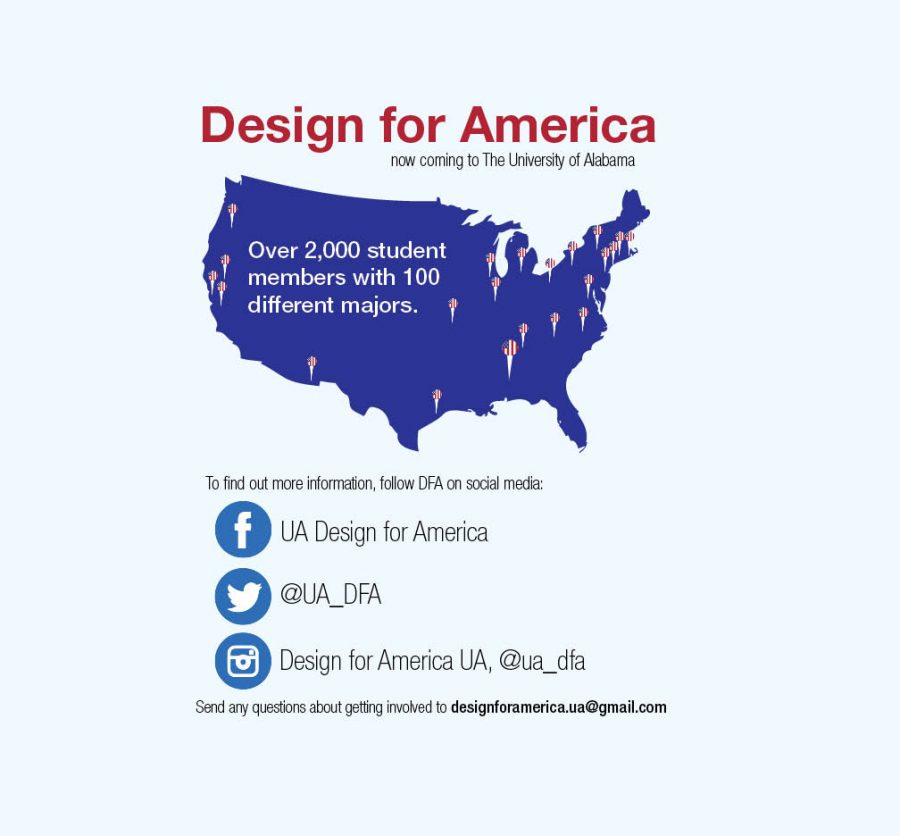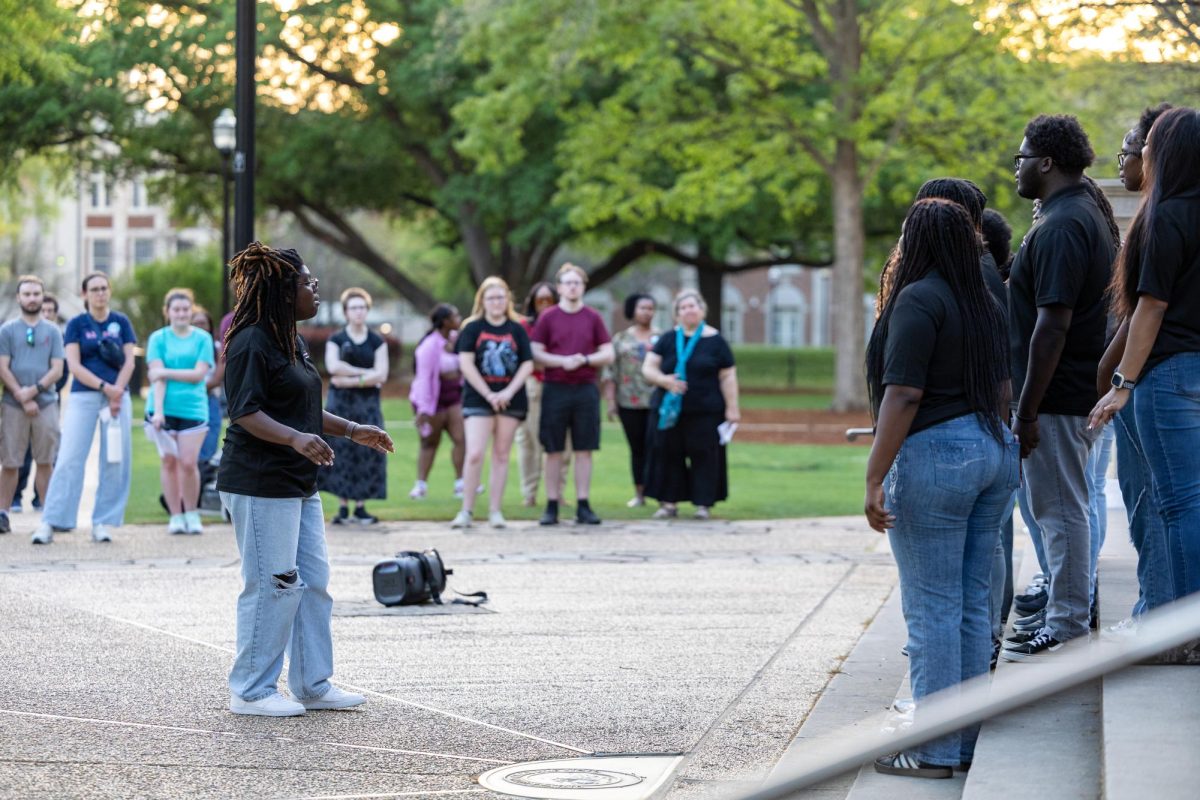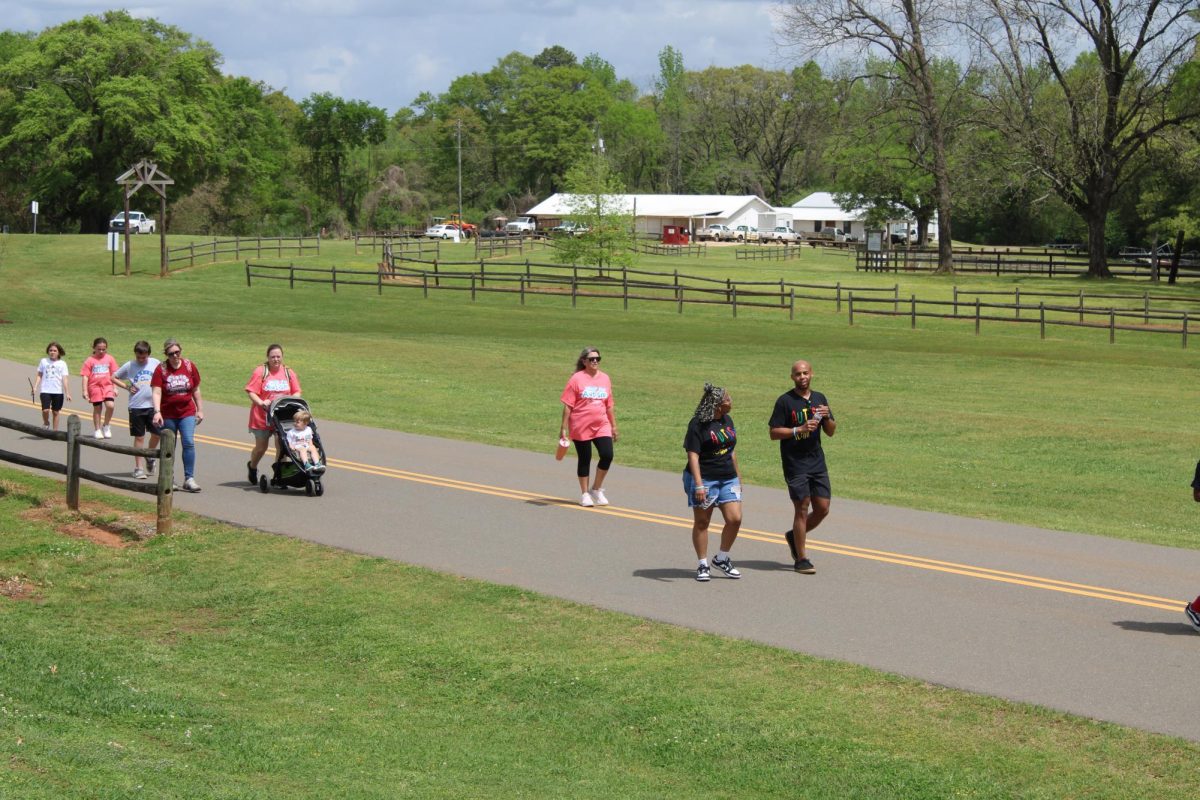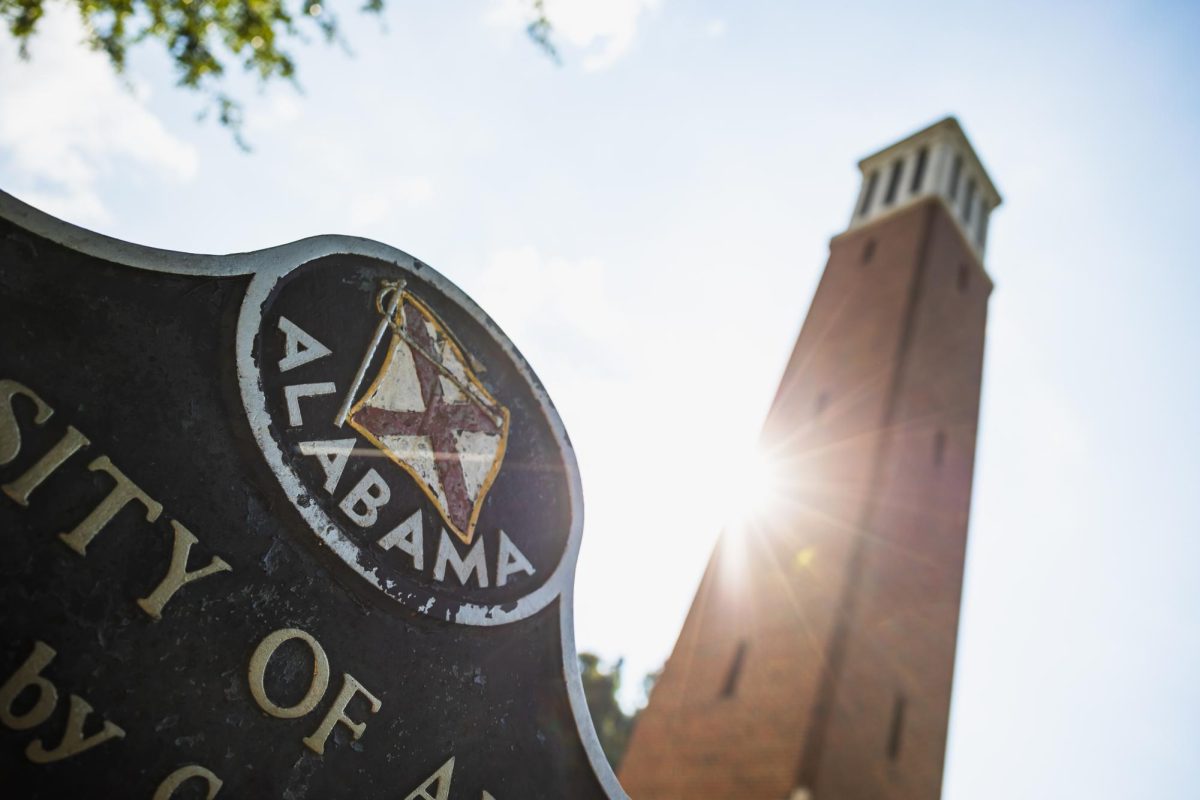A group of more than 30 students are in the process of establishing a chapter of Design for America on the University of Alabama campus.
Emma Smith, a sophomore majoring in communication studies and urban design, serves as marketing director for the UA group.
“[DFA is] all about human-centered design, which to me means pinpointing areas in the community based on what the community expresses [its] needs to be,” Emma Smith said.
The mission of the organization is to use creative thinking skills to address local problems. DFA is forming three new studios this year and the UA group has passed to the second round of the admissions process to become one of the final three. Megan Smith, a junior majoring in economics and political science, is one of the co-founders, or studio leads, of the future UA branch.
“DFA is a national network of college campuses, and they have studios at some of the most prestigious universities – that’s what your organization is called on campus, it’s called a studio,” Megan Smith said.
Once formed and selected for membership, studios form smaller action groups to choose a local issue and brainstorm creative ways to address it. Joey Weed, a junior majoring in mathematics and economics who serves as co-studio lead, said the organization’s mission would benefit the University and the surrounding community.
“The connection with the local Tuscaloosa community was the hook for bringing DFA to The University of Alabama,” Weed said.
Garnering interest was phase one of the application process, which the UA group passed in the last month. Phase two requires the group to select an issue in the community and participate in a workshop called Design Thinking Bootcamp led by a DFA representative.
Megan Smith said the group chose to address functional illiteracy in the surrounding area as their first project.
“[We are] not only looking at what is life like for someone who is functionally illiterate, but what is it like for that person’s child, what is it like for that person’s health care provider, what is it like for someone who works with that person on a daily basis,” Megan Smith said.
Emma Smith said the group is trying to reach outside of what most think are design-focused courses of study.
“[DFA] seems pretty daunting to a person who is a math major who is like, ‘I think I want to be creative, but are they gonna reject me?’” Emma Smith said. “So we have to brand ourselves so well so that we aren’t an exclusive society or club.”
Weed said expanding the general population’s concept of creativity has been one of the biggest hurdles in recruiting members.
“Most people think they’re not creative enough,” Weed said. “It’s just not true. Anyone can be creative if put in the right environment. Creativity is not about drawing pictures or wearing skinny jeans – it’s about challenging assumptions and building off ideas around you.
The two-hour Design Thinking Bootcamp will take place Feb. 9 at 5 p.m. in a location to be determined and announced via email and social media. Any students interested in joining the group can email designforamerica.ua@gmail.com and follow the group on social media.









